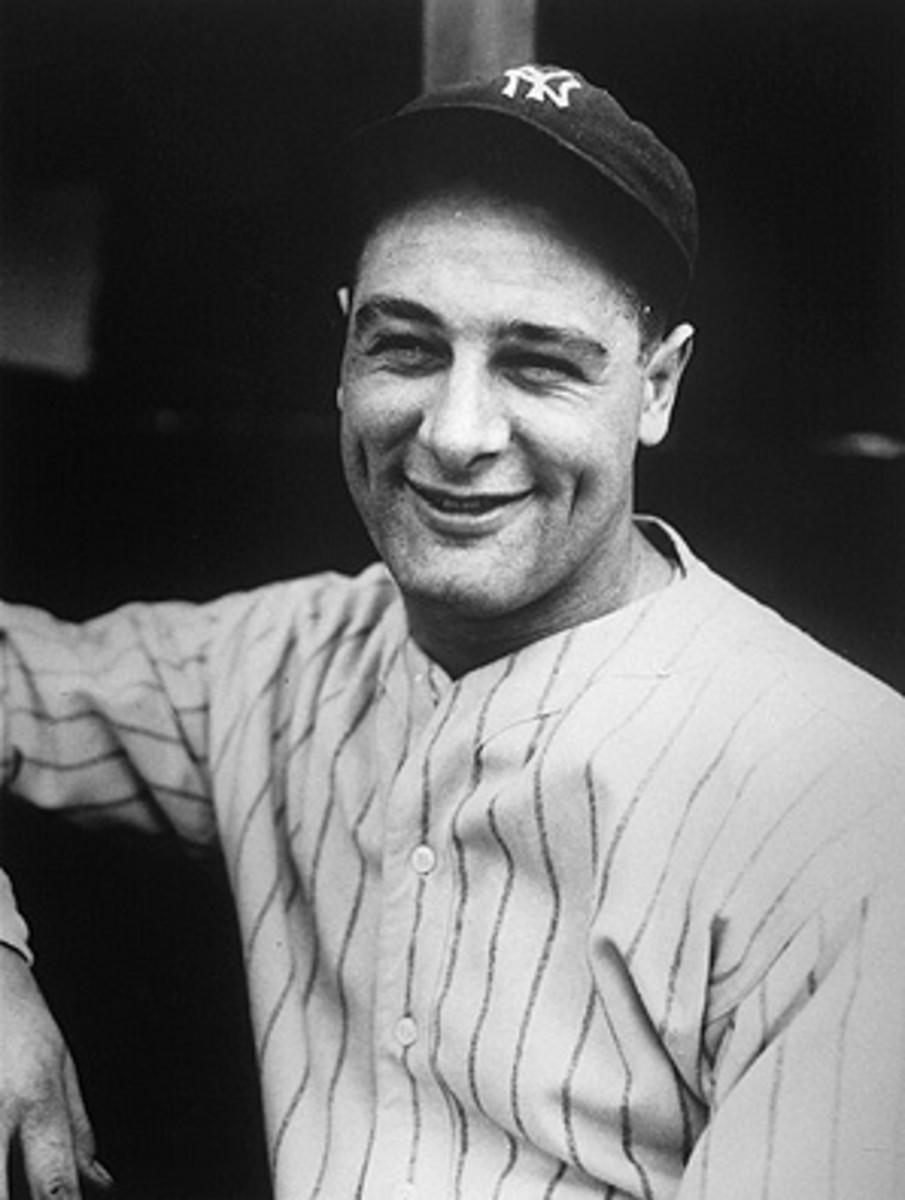
There are many reasons why there will never be another Gehrig
Despite the odds he faced, the Iron Horse, overcome with emotion at the outpouring of support the news of his affliction had generated, stood at home plate and told the throng, "Fans, for the past two weeks you have been reading about the bad break I got. Yet today I consider myself the luckiest man on the face of this earth. ... I may have had a tough break, but I have an awful lot to live for."
Less than two years later Gehrig died at age 37. Ever since, ALS has been known as Lou Gehrig's Disease; there is still no cure. In 1999, another Yankees Hall of Famer, right-hander Catfish Hunter, died of the ALS at age 53. On Saturday, Major League Baseball will call attention to the illness in hopes of raising funds for ALS research. (You can check out MLB's 4ALS Blog for more information.) All players will wear a patch reading 4 ALS, and there will be ceremonies at each of the 15 ballparks where games are taking place. During the seventh-inning stretch, Gehrig's words will be read and scoreboards will show video of the speech. The oration has passed into American lore, thanks to old newsreels and its recitation by Gary Cooper, who portrayed Gehrig in the 1942 four-hankie film classic Pride of the Yankees. (On a personal note: My father and uncle, New York Giants fans but also fervent Gehrig admirers, witnessed the '39 event; to continue the family tradition, on Saturday I'll be with my daughter at the new Yankee Stadium, where the Bronx Bombers will face the Blue Jays.)
Gehrig's statistics are staggering -- .340 career average, a Triple Crown in 1934, and 184 RBIs in '31 (still the AL single-season high) -- and his mark of 2,130 consecutive games played was considered unassailable until Cal Ripken came along. But although Cal broke Lou's record in 1995, there is one category in which the Iron Horse never will be surmounted: Most Admired American Athlete of All Time. (Maybe Walter Payton, who also died at an untimely age, matches him.) And the reasons tell more about us than about Gehrig.
Today, we are in the business of cutting our idols down to size. Consider Derek Jeter. Like Gehrig, he has had a career of championships and individual accomplishment; like Gehrig, he is captain of the Yankees; like Gehrig, there never has been a whiff of scandal surrounding him. But what do we see? He's on Page Six, partying 'til all hours with the model of the moment even as the Yankees are on a losing streak. Not that there's anything wrong with that -- it just means he'll never be as monumental in our minds as Gehrig.
In this respect, Gehrig and other players of his era (with rare exceptions such as his larger-than-life teammate Babe Ruth) were the luckiest men on the face of the earth. They had their deeds on the ballfield chronicled, but little else -- and even what was written was sanitized. For evidence, check out a fascinating book published in 1977 called Baseball As I Have Known It by Fred Lieb. In Pride of the Yankees, the role of Lieb was played by Walter Brennan. The New York baseball writer and historian, who died in 1980, was Gehrig's closest confidant outside of his family. (A writer being a player's close confidant ... now, there's a concept!) Among the revelations in Lieb's book is this: "None of Ruth's vulgarities rubbed off on Gehrig. Rarely did he use a cuss word in his daily conversation. Nor did he attend the sex parties Ruth often gave in his hotel room when the team was on the road. Some writers have suggested that Lou was a 'virgin' then, but this I know not to be so, for he shyly admitted to me an occasional sexual adventure."
Lieb also tells how he and his wife, Mary, were sitting with Gehrig's wife, Eleanor, at the Gehrigs' home in Larchmont, N.Y., when Lou called from the Mayo Clinic with his grim diagnosis. (At this time, Lieb was a freelance writer.) "Eleanor excused herself to take [the call] in the bedroom," Lieb writes. "When she emerged she said, 'I guess I need a drink, a real stiff drink. You know what that Dutchman just told me? 'Don't worry, Ellie -- I have a 50-50 chance to live' -- just as though he were asking about the weather in Westchester County. Something is really wrong with him, and I think his spinal cord is affected.'"
Continues Lieb, "I knew it was a hell of a story that any New York paper would pay me a good bonus for, but I made no mention of the Gehrig disability to anyone until the Yankees made the official statement two days later."
Can you imagine this scenario today? There'd be round-the-clock TV stakeouts at the Mayo Clinic. Quite possibly, an insider would be offered a ton of cash in exchange for confidential medical information. And wouldn't any writer, no matter how loyal to his subject, be worried about holding the story and losing his scoop?
All of which is to say, it would be virtually impossible for an athlete to preserve his privacy. He might hold on to his dignity, but there'd be no way to retain the stately, stoic image that Gehrig put forth.
Someday, we may see another Lou Gehrig -- a player as great and humble and inspirational. But we'll find some chink in his armor. As we've seen as the last seven decades have unfolded, the loss is all ours.


































